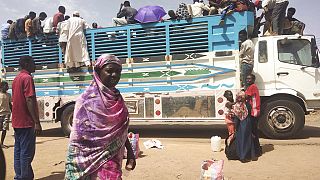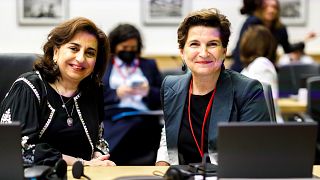The Morning Call
Sport has been known to be the most unifying tool for peace in the world. It’s been idealized as a way to heal wounds, mend fences, and rise above differences among cultures and nations. But Nobody sells the sports-as-diplomacy theme better than the Olympics.
Even the design of the five interlocking rings in the Olympics logo is symbolic; it represents the five continents of the world, united by Olympism, while the six colours are those that appear on all the national flags of the world at the present time.
Now, the 2018 Winter Olympics got underway last week in Pyeongchang. Every continent is represented. But one of the key highlights was the host nation South Korea marching side by side with their neighbours North Korea under the Korean unification flag in a powerful gesture of friendship, peace and togetherness. Those were very much the central themes as the 23rd edition of the olympic winter games was officially launched.
IOC President Thomas Bach and United Nations’ Secretary-General Antonio Guterres reaffirmed that the Olympic message of peace is “for the whole world” when they met in Pyeongchang, South Korea just hours before the opening ceremony of the Games.
Thomas Bach said: “Through sport we want there to help wherever we can knowing that we cannot create peace but also recognising that we have a responsibility to contribute to a dialogue, to openness, to respect and to make it clear that in sport in fact everybody is equal.”
“The Olympic spirit allows people to be together from all over the world, to respect each other, to assert the values of tolerance, of mutual understanding, that are the basic elements for peace to be possible. Obviously in the present context there is a lot of attention for this message of peace in relation to the Korean peninsula, but I want to say very clearly that the Olympic message of peace is not local, it’s universal, it’s for the whole world, it’s as valid in Korea as it is valid everywhere where we struggle to try to address the many conflicts that we are facing,” said Mr. Gutteres.
The football World Cup is also often viewed as an event so transcendent of politics and prejudice that even nations embroiled in war lay down their arms and come together for a few weeks to cheer on their national teams. Here in Africa it seems to have worked for Ivory Coast, where star striker Didier Drogba spoke publicly before, during, and after the 2006 World Cup about the tournament’s ability to turn his country’s attention away from civil war.
Back in October 2005 after a World Cup qualifying match against Sudan, Drogba picked up a microphone in the dressing room and, surrounded by his team-mates, fell to his knees live on national television. He begged both warring factions to lay down their arms and, within a week, his bold wish had been granted. By the time the Elephants lined up for their first 2006 World Cup match against Argentina in Germany, the war had ended.





![Africanews celebrates fifth anniversary [Night Shift]](https://static.euronews.com/articles/stories/05/57/72/74/320x180_cmsv2_6b1e7837-a917-526b-b3b4-4582a3f8bcac-5577274.jpg)
![Africanews celebrates fifth anniversary [Morning Call]](https://static.euronews.com/articles/stories/05/57/72/70/320x180_cmsv2_a6c857d4-80a3-510a-88e6-f060ea8d9ee9-5577270.jpg)






01:03
United Nations harnesses power of music for peace in South Sudan
Go to video
"Russia doesn't want a ceasefire", says French president Macron
01:15
Club World Cup to unite players from 87 countries - FIFA chief
01:00
Pope Leo XIV calls for the release of imprisoned journalists
Go to video
UN Pushes for Inclusive Somali dialogue
02:11
DRC: Huge rally for peace in Butembo